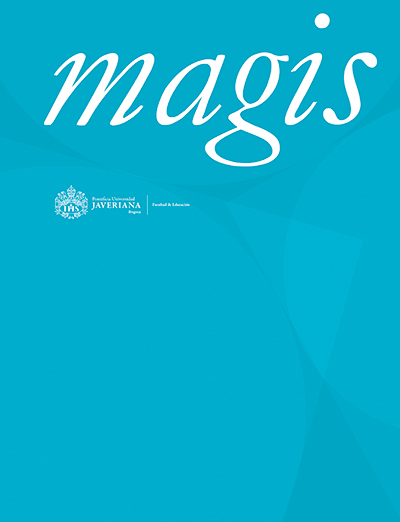Resumo
This article explores predominant uses of theory in social science research in relation to the approach of phenomenological philosophy. While phenomenology is sometimes interpreted as one theoretical or methodological paradigm amongst others in the field of qualitative research, this article explores key thinkers within the philosophical tradition of phenomenology to argue that this tradition can raise challenges for predominant conceptions of research and theorizing in the social sciences and certain philosophical idea(l)s that can be connected to them. The distinctive nature of phenomenological description is outlined, and new possibilities for qualitative research are sketched.
Denzin, N. K. & Lincoln, Y. S. (1998). Strategies of Qualitative Inquiry. California: Sage Publications.
Eagleton, T. (2003). After Theory. Cambridge, Massachusetts: Basic Books.
Giorgi, A. (1997). The Theory, Practice, and Evaluation of the Phenomenological Method as a Qualitative Research Procedure. Journal of Phenomenological Psychology, 28 (2), 235-260.
Glendinning, S. (2007). In the Name of Phenomenology. Oxford: Routledge.
Heidegger, M. (1992 [1925]). History of the Concept of Time. Indiana: Indiana University Press.
Heidegger, M. (2004 [1954]). What is Called Thinking? New York: Harper & Row.
Heidegger, M. (2005 [1927]). Being and Time. Kundli, India: Blackwell Publishing.
Husserl, E. (1983 [1913]). Ideas Pertaining to a Pure Phenomenology and to a Phenomenological Philosophy Book One. London: Kluwer Academic Publishers.
Jarvis, M. & Oakley-Brown, L. (2004). Talking after Theory: An Interview with Terry Eagleton. English, 53 (207), 177-190. https://doi.org/10.1093/english/53.207.177
Krause, M. (2016). The Meanings of Theorizing. The British Journal of Sociology, 67 (1), 23-29. https://doi.org/10.1111/1468-4446.12187_4
Kuhn, T. (1962). The Structure of Scientific Revolutions. Chicago and London: University of Chicago Press
Mulhall, S. (2001). Inheritance and Originality: Wittgenstein, Heidegger, Kierkegaard. Clarendon Press: Oxford.
Mulhall, S. (2008). The Wounded Animal: J. M. Coetzee and the Difficulty of Reality in Literature and Philosophy. Princeton: Princeton University Press.
Oxford University Press, OUP (2017). Oxford English Dictionary, OED. http://www.oed.com
Ryle, G. (2009 [1958]). A Puzzling Element in the Notion of Thinking. In Julia Tanney (ed). Gilbert Ryle Collected Papers, Volume 2, 404-419. Oxford: Routledge.
Sartre, J.-P. (1933). Nausea. London: Penguin.
Standish, P. (1992). Beyond the Self: Wittgenstein, Heidegger and the Limits of Language. London: Ashgate.
Standish, P. (1995). Why We Should Not Speak of an Educational Science. Studies in Philosophy and Education, 14 (2-3), 267-281.
Swedberg, R. (2016). Before Theory Comes Theorizing or How to Make Social Science More Interesting. The British Journal of Sociology, 67 (1), 5-22. https://doi.org/10.1111/1468-4446.12184
Taylor, C. (1997). Lichtung or Lebensform: Parallels between Heidegger and Wittgenstein. In Charles Taylor. Philosophical Arguments, 61-78. Cambridge, Massachusetts: Harvard University Press.
Taylor, C. (2013). Retrieving Realism. In Joseph K. Schear (ed.). Mind, Reason and Being-in-the-World: The McDowell-Dreyfus Debate, 61-90. Oxford: Routledge.
Williams, E. (2015). In Excess of Epistemology: Siegel, Taylor, Heidegger and the Conditions of Thought. Journal of Philosophy of Education, 49 (1), 142-160. https://doi.org/10.1111/1467-9752.12103
Williams, E. (2016a). The Ways We Think: From the Straits of Reason to the Possibilities of Thought. London: Wiley-Blackwell.
Williams, E. (2016b). Oakeshott, Bonnett, Derrida and the Possibilities of Thought. In D. Bakhurst & P. Fairfield (eds.). Education and Conversation: Exploring Oakeshott’s Legacy. London: Bloomsbury.
Wood, D. (2002). Thinking after Heidegger. Oxford: Polity Press.
A revista magis, Revista Internacional de Pesquisa em Educação by Pontificia Universidad Javeriana encontra-se registada sob a licencia Creative Commons Versão 4.0 Internacional. Portanto, esta obra pode se reproduzir, distribuir e comunicar publicamente em formato digital, sempre que dado o crédito apropriado para os autores e a Pontificia Universidad Javeriana. Permite-se citar, adaptar, remixar, transformar, autoarquivar, republicar e criar a partir do material, para qualquer fim, mesmo que comercial, sempre que indicado apropriadamente o nome do criador, provido um link para a obra original e indicado se mudanças foram feitas. A Pontificia Universidad Javeriana não retém os direitos sobre as obras publicadas e os conteúdos são responsabilidade exclusiva dos autores, os quais conservam seus direitos morais, intelectuais, de privacidade e publicidade.
O aval sobre a intervenção da obra (revisão, correção, edição, tradução, formatação) e a subsequente difusão disponibiliza-se através de licença de uso e não através de transmissão de direitos, o que representa que a revista e a Pontificia Universidad Javeriana são isentas de qualquer responsabilidade que puder se derivar de uma prática ética pobre por parte dos autores. Em consequência da proteção fornecida pela licença de uso, a revista não fica na obrigação de publicar retratações ou alterar informações já publicadas, a não ser que a errata seja decorrente do processo de gestão editorial. A publicação de conteúdos nesta revista não representa royalties para os contribuintes.
Creative Commons Attribution 4.0 International Public License



